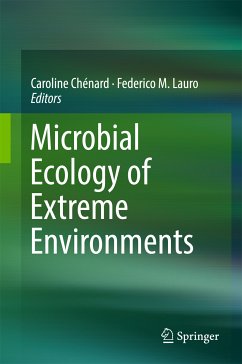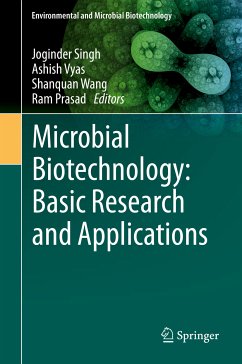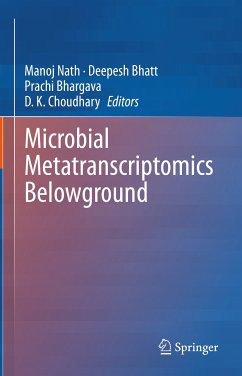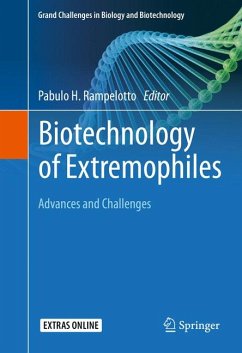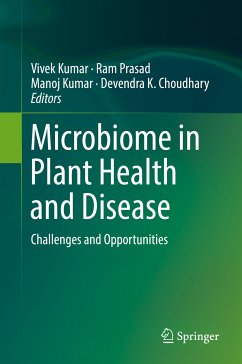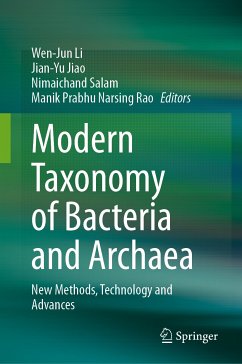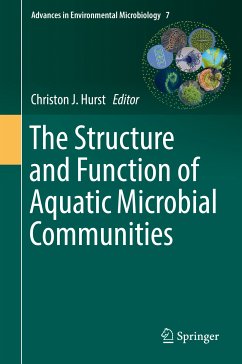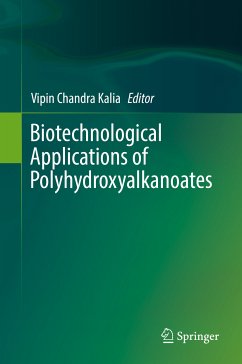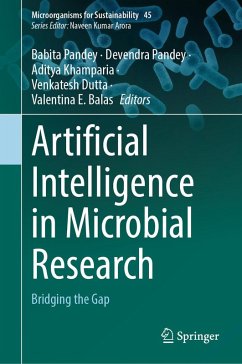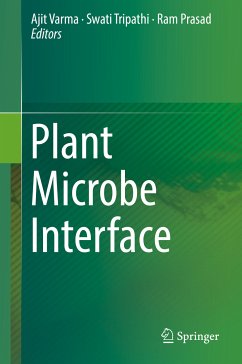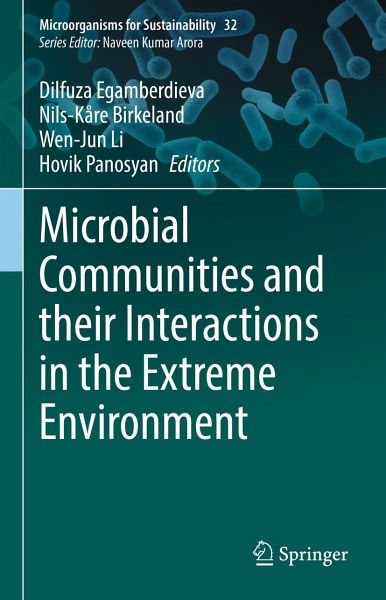
Microbial Communities and their Interactions in the Extreme Environment (eBook, PDF)
Versandkostenfrei!
Sofort per Download lieferbar
136,95 €
inkl. MwSt.
Weitere Ausgaben:

PAYBACK Punkte
68 °P sammeln!
This second edition of the book entitled "Microbial Communities and Interactions in extreme environments" focus on thermophilic and halophilic extremophiles from various ecosystems, their biodiversity, interactions with other organisms and functions within their hostile environment. Biotechnology of extremophiles and their potential agricultural and industrial applications is the focus of this edition. However, extremophiles may cope with their challenging environments. Information on biodiversity of extremophiles and their interactions with the surrounding biomes helps in understanding their ...
This second edition of the book entitled "Microbial Communities and Interactions in extreme environments" focus on thermophilic and halophilic extremophiles from various ecosystems, their biodiversity, interactions with other organisms and functions within their hostile environment. Biotechnology of extremophiles and their potential agricultural and industrial applications is the focus of this edition. However, extremophiles may cope with their challenging environments. Information on biodiversity of extremophiles and their interactions with the surrounding biomes helps in understanding their ecology and functions within their respective extreme environments. This book is of interest to teachers, researchers, microbiologists, capacity builders and policymakers. Also, the book serves as additional reading material for undergraduate and graduate students of agriculture, forestry, ecology, soil science, microbiology and environmental sciences.
Dieser Download kann aus rechtlichen Gründen nur mit Rechnungsadresse in A, B, BG, CY, CZ, D, DK, EW, E, FIN, F, GR, HR, H, IRL, I, LT, L, LR, M, NL, PL, P, R, S, SLO, SK ausgeliefert werden.



